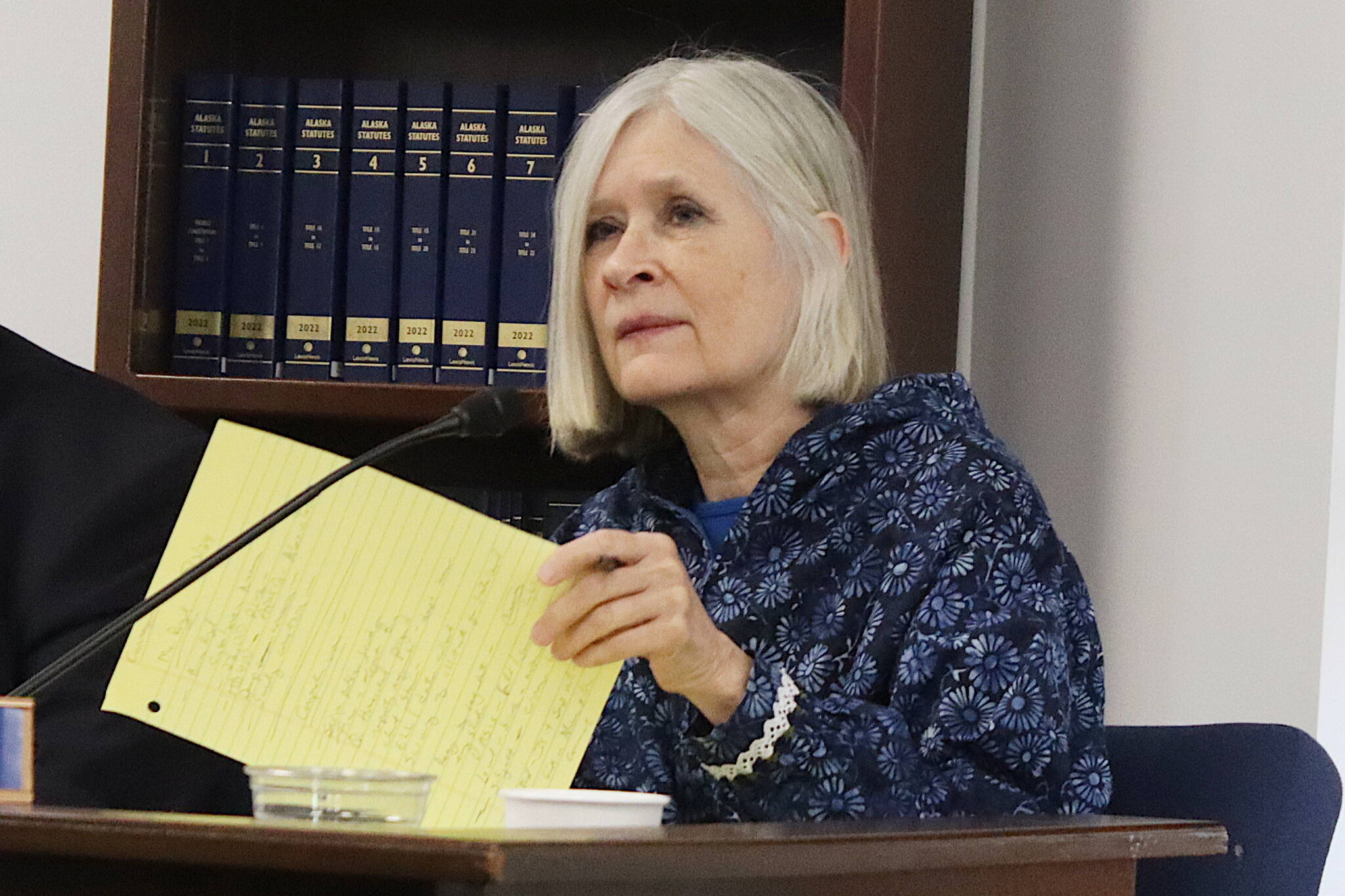A Juneau legislator’s bill adding four Indigenous languages to Alaska’s official list, giving the state a total of 23, unanimously passed the state Senate on Monday, positioning it to be sent to Gov. Mike Dunleavy during the closing days of the legislative session.
House Bill 26 by Democratic Rep. Andi Story passed the House by a 37-1 vote near the end of last year’s session. The lower chamber will need to concur with changes made by the Senate, including the deletion of a sentence in existing law stating English will be used for all government actions since the clause has been determined to be unconstitutional.
The bill also changes the Alaska Native Language Preservation and Advisory Council (ANLPAC) to the “Council for Alaska Native Languages” and expands the five-member council by two members.
The legislation reflects two years of work by the council that was established in 2012, said Sen. Donny Olson, a Golovin Democrat who carried the bill in the upper chamber, during a brief floor presentation Monday.
”The bill brings the council’s mission into the present day by focusing on the implementation of Alaska Native languages rather than only preservation,” he said.
Adding members to the council and changing its name is intended “to be more inclusive of all Native languages and cultures throughout the state,” Olson said. The council will also be relocated to the Alaska Department of Education and Early Development, rather than the Department of Commerce.
“These minor changes will have a major impact on the Council for Alaska Native Languages and will help carry languages from our past into the future for generations to come,” he said.
Added to Alaska’s official languages in the bill are Cup’ig and Wetał (Ts’etsa’ut), while the existing Tanana language is divided into the Benhti Kokhwt’ana Kenaga’ (Lower Tanana) and Sahcheeg xut’een xneege’ (Middle Tanana) languages. A report prepared for the council by D. Roy Mitchell IV about “Alaska’s 23 Indigenous languages” details the history and reasons for inclusion of Cup’ig and Wetał to the 20 languages detailed in a 1974 map by Michael Krauss.
“The Wetał language, also called Ts’etsa’ut, was spoken on both sides of the Portland Canal on what is now Southeastern Alaska and British Columbia, from unknown ancient times up until the late 1920s or early 1930s, when the last highly proficient speaker passed away,” Mitchell wrote. However, it had ceased to be spoken in Alaska when Krauss began his work with Alaska Native languages in 1960.
The Central Yup’ik area on Krauss’ map “includes a distinctly different Yupik language, Cup’ig, which requires its own, dictionary distinct from that of Central Yup’ik,” Mitchell added. “The Cup’ig people of Nunivak Island (modern day village of Mikoryak) have considered their language to be distinct all along. Please note that the significantly distinct Cup’ik dialect of Chevak and Hooper Bay is nonetheless a dialect of Central Yup’ik.”
As for dividing the Tanana language, the area shown as Tanana on Krauss’ map “includes what local people consider to be two, distinct languages, a view shared by the two linguists who have done the most work with these languages.” Mitchell wrote.
While there are few current fluent speakers of languages added in HB 26, support for the bill as a way of preserving and restoring such “overlooked” languages was expressed in a letter by the Alaska Regional Coalition, a consortium representing five Alaska Native regional tribal entities in 100 communities.
“By (passing the bill), the State of Alaska is demonstrating its commitment to preserving the cultural heritage of its Indigenous peoples and ensuring that future generations have the opportunity to learn and use these languages,” the letter states.
• Contact Mark Sabbatini at mark.sabbatini@juneauempire.com or (907) 957-2306.

